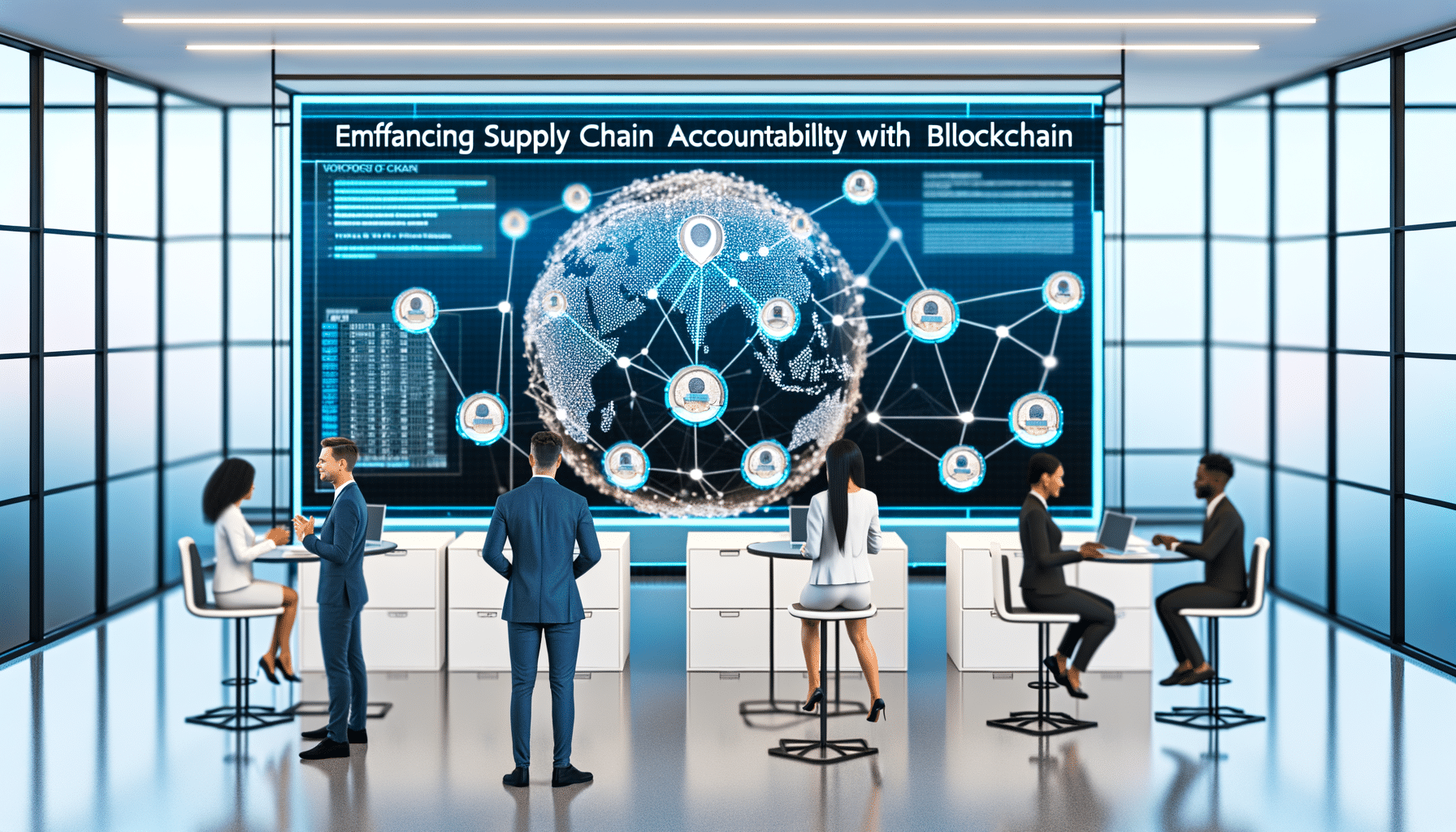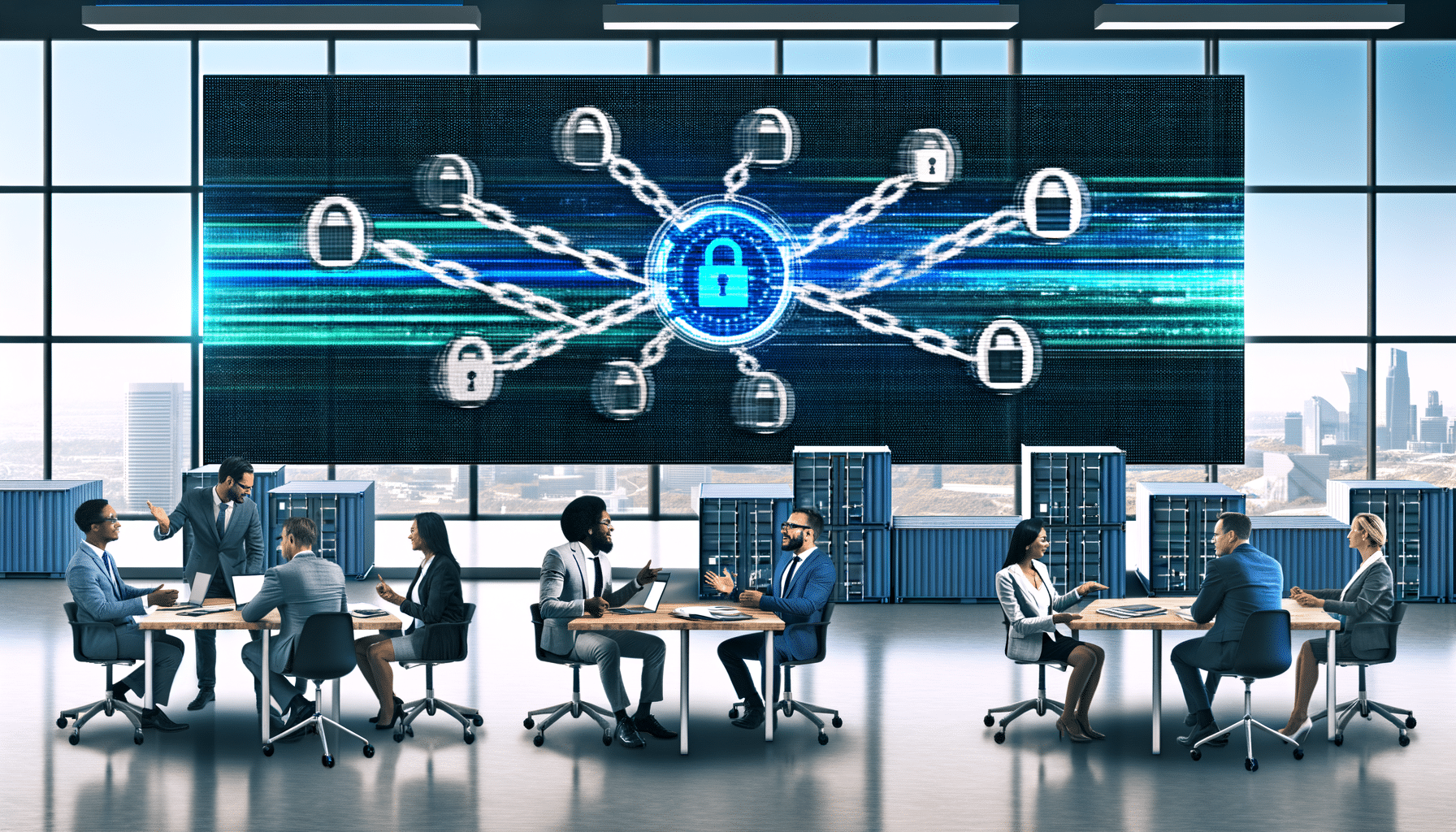- Supply Chain
- March 15, 2023
Enhancing Supply Chain Accountability with Blockchain

Introduction
In today’s rapidly evolving global landscape, supply chains have become more intricate and distributed. With various stakeholders involved, from raw material suppliers to finished goods retailers, ensuring transparency and accountability can be a herculean task. This is where blockchain steps in as a game-changer, promising enhanced accountability and revolutionizing traditional supply chain models.
As someone deeply vested in technological innovation, I have observed firsthand the transformative power blockchain can have in supply chain management. Allow me to share insights on this incredible technology and its profound impact on the industry.
The Complexity of Modern Supply Chains
Managing a supply chain is akin to conducting an orchestra, with numerous players working harmoniously to achieve a unified outcome. But miscommunications, delays, or any form of discrepancy can affect the entire system. Here are common challenges that organizations face:
Traditional methods have their limits. Fortunately, blockchain offers a refreshing take that addresses these challenges head-on.
How Blockchain Catalyzes Accountability
Blockchain stands out with its decentralized, immutable ledger technology. Rather than having a single point of control, the blockchain adds transactions in a time-stamped and permanent manner, visible to all stakeholders. Here’s how it can enhance accountability:
1. Immutable Records
Blockchain’s primary strength lies in immutability. Every transaction recorded on the blockchain cannot be altered, providing a secure, unchangeable history of a product’s journey. This assures stakeholders of the accuracy of information, preventing tampering.
2. Real-Time Tracking
Blockchain facilitates the real-time tracking of products as they move through the supply chain. This transparency allows stakeholders to view and verify every phase of a product’s lifecycle, increasing trust and enabling speedy issue resolutions.
3. Enhanced Security
By using cryptographic keys, blockchain guarantees high-level security. This ensures that only authorized parties can access the information. Such robust security measures mitigate the risks of data breaches and fraud.
4. Smart Contracts
Integrating blockchain with smart contracts automates and enforces contractual agreements. Actions are executed automatically based on pre-set conditions, reducing the time, cost, and potential disputes associated with manual processing.
Real-World Implementations
Several enterprises have harnessed blockchain to drive supply chain accountability. A notable example is IBM and Walmart, who collaborated to develop a blockchain-based system to trace food products’ origins. As a result, the time to track the provenance of food was drastically reduced from weeks to mere seconds. Similarly, the fashion industry has benefited, with luxury brands using blockchain to authenticate genuine products.
Challenges and Considerations
Even with its advantages, integrating blockchain into supply chains is not without challenges:
Addressing these challenges requires strategic planning and collaboration among industry players.
The Road Ahead
Blockchain’s potential isn’t limited to accountability; it offers opportunities to innovate and further optimize supply chains. With organizations becoming more aware of environmental and social governance, blockchain can facilitate ethical sourcing and sustainability through traceability.
In conclusion, blockchain is not merely a tool but a pivotal component shaping the future of supply chains. As a founder deeply committed to leveraging technology for the greater good, I urge businesses to embrace blockchain. Empower your supply chains with unparalleled transparency, security, and efficiency.
Conclusion
As we navigate the complexities of global supply chains, blockchain emerges as an essential ally. It provides an unprecedented level of transparency and accountability, transforming supply chain operations into streamlined, trustworthy processes. Whether you’re a stakeholder seeking peace of mind or a company aiming for excellence, harness blockchain’s potential to meet and exceed your goals.
For more cutting-edge insights and advancements in technology and supply chains, I invite you to follow my journey with RecordsKeeper.AI. Together, let’s revolutionize how we perceive and handle data.
Toshendra Sharma is the visionary founder and CEO of RecordsKeeper.AI, spearheading the fusion of AI and blockchain to redefine enterprise record management. With a groundbreaking approach to solving complex business challenges, Toshendra combines deep expertise in blockchain and artificial intelligence with an acute understanding of enterprise compliance and security needs.
Related Posts

Blockchain in Supply Chain Compliance
Ensuring supply chain compliance using blockchain technology.
- November 16, 2024

Blockchain for Supply Chain Record Management
Implementing blockchain technology for transparent and secure supply chain documentation.
- November 16, 2024
Archives
- December 2024
- November 2024
- October 2024
- September 2024
- August 2024
- July 2024
- June 2024
- May 2024
- April 2024
- March 2024
- February 2024
- January 2024
- December 2023
- November 2023
- October 2023
- September 2023
- August 2023
- July 2023
- June 2023
- May 2023
- April 2023
- March 2023
- February 2023
- January 2023
- December 2022
- November 2022
- October 2022
- September 2022
- March 2019
Want to get more content like this?
Signup to directly get this type of content to your inbox!!
Latest Post
Organizing External Auditor Access
- December 22, 2024
Document Control in Manufacturing Plants
- December 21, 2024
Handling Rush Financial Report Requests
- December 20, 2024
Managing Record Access After Staff Changes
- December 19, 2024





